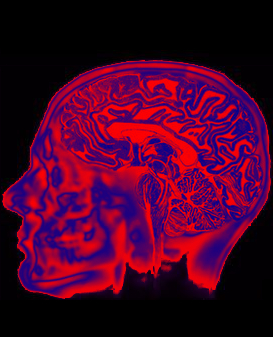COVID stress could flow to foetus
 A small study suggests pandemic distress may affect foetal brain development.
A small study suggests pandemic distress may affect foetal brain development.
The mental ill-health of pregnant women during the pandemic may be linked with changes in the brain of developing foetuses, according to an international study of 202 women - who did not catch COVID-19.
The study involved 65 women who were pregnant during the pandemic (June 2020 to April 2021) and 137 who were pregnant prior to the pandemic (March 2014 to February 2020).
The study assessed the potential impact of the pandemic itself on pregnant women and their developing foetuses before birth, rather than the impact of COVID-19 infections.
The researchers imaged the brains of foetuses in the wombs of mothers who were pregnant before and during the COVID-19 pandemic using Magnetic Resonance Imaging (MRI).
The imaging assessed the surface structure of the brain, including cortical folding and the wrinkled shape (gyrification) and depth of the wrinkles (sulcal depth) of the brain surface.
Using MRI scans of foetuses in the latter half of pregnancy, they found some areas of the foetal brain were smaller, and brain development delayed, for foetuses of distressed mothers.
The authors say more research is needed but the study suggests the pandemic’s contribution to mental distress in pregnancy may lead to altered development of key foetal brain structures.








 Print
Print